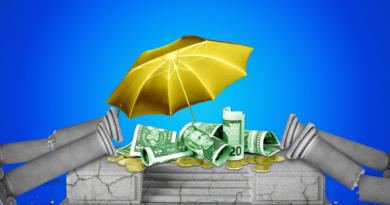Fed has low odds of achieving a soft landing because the economy is still too strong to entirely cool inflation, former central bank officials say
Two former Federal Reserve policymakers agreed the US central bank is unlikely to achieve a soft landing of the economy while disagreeing over what it should do next.
Speaking to an American Enterprise Institute webinar Thursday, ex-Fed Vice Chair Donald Kohn said the central bank probably needs to raise interest rates a little more, while former Fed Governor Kevin Warsh cautioned against doing so and said rates have likely reached a peak.
After boosting rates by more than five percentage points over the last 18 months, Fed Chairman Jerome Powell and his colleagues left policy unchanged on Wednesday while signaling that a further increase was likely later this year.
In economic projections released after their meeting, policymakers saw unemployment rising to 4.1% at the end of next year from 3.8% now, while growth slows to 1.5% in 2024 from 2.1% in 2023, according to their median forecast. Inflation is predicted to ease to 2.5% at the end of 2024 from 3.3% in the fourth quarter of this year.
Kohn, who is now a senior fellow at the Brookings Institution, said he put low odds on the Fed achieving such a “perfect soft-landing.”
“They’re going to have to damp demand a bit more than it’s been damped so far and create a little bit of slack in the labor market,” he said, adding that he sees a “decent chance of a softish” landing for the economy.
Warsh said that a soft landing was less likely now than it was six weeks ago: the dollar is stronger, energy prices are higher and long-term interest rates are up.
“None of that is good for a soft landing,” the Hoover Institution visiting fellow said, adding, “I don’t think it should be necessary to raise rates.”
Warsh, though, sees the yield on the 10-year Treasury note increasing “materially” as investors become more concerned both about large US budget deficits and the risk of higher and more volatile inflation in the future.
What’s more, some of the biggest buyers of Treasuries in recent years are pulling back, he said. That includes the Fed, which is now reducing its bond holdings, China and Japan, according to Warsh.
On Thursday, the yield on the 10-year note stood at 4.49%, up from 3.87% at the end of last year.



